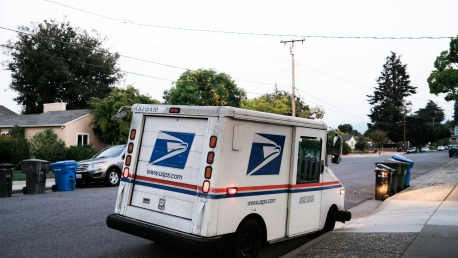The explosion of online shopping and the popularity of fast shipping options have underscored the importance of last-mile delivery in the logistics field. This stage is critical because it directly impacts how customers perceive a brand and their level of satisfaction with the service. Consequently, having precise and up-to-date address information has become essential for companies looking to improve their delivery effectiveness.This need for accuracy in addresses speaks to a larger trend where logistics companies must manage their operations meticulously to meet the expectations of customers who now demand speedy, reliable service. As the face of e-commerce continues to evolve, the pressure on the final leg of delivery only grows, making the quality of address data a non-negotiable element of successful delivery strategies. Companies that want to stay competitive in this fast-paced market have no choice but to invest in the technology and processes that ensure each package reaches its destination as promised.
The Importance of Last-Mile Delivery Excellence
The Impact of Delivery Efficiency on Customer Satisfaction
Customers place a high value on the accuracy of their delivery addresses, even more so than on the speed of delivery, according to a PwC study. The importance of precise deliveries can’t be overstated, as incorrect deliveries can lead to immediate customer frustration and have a detrimental impact on future sales prospects for the company in question. A single delivery error due to an address mistake may significantly damage a customer’s perception of a brand. Last-mile delivery accuracy is crucial; it’s not just about getting a package to a doorstep quickly but ensuring it arrives at the right doorstep. This level of precision in last-mile services is essential for companies aiming to maintain excellent customer service and cement their reputation for reliability. By prioritizing address accuracy, businesses can foster stronger, more trusting relationships with their customers, making it a critical component in the overall customer satisfaction equation.
The Role of Data Integrity in Successful Deliveries
Success in last-mile delivery heavily depends on the precision of address data. Outdated or incorrect addresses can thwart delivery timelines and sour the customer experience. Address information is dynamic—a single change, like new construction or address renumbering, can disrupt deliveries. Companies must therefore prioritize the frequent updating and verification of address databases to prevent these interruptions. Keeping address data accurate serves not just to please customers but also to boost operational efficiency and the bottom line. Effective last-mile delivery demands a rigorous approach to address management, as lapses here can be both costly and detrimental to a business’s reputation. The pursuit of excellence in address data collection and maintenance is critical for any organization looking to excel in the competitive space of delivery services.
Strategies for Enhancing Address Data Quality
Geo Addressing and Its Benefits
Geo addressing serves as a pivotal tool for ensuring address accuracy. It involves assigning specific coordinates to every delivery point, creating a detailed and precise map for delivery drivers to follow. These geocodes eliminate ambiguity and the common discrepancies found in traditional addressing systems, like variations in street names or numbering conventions. Through geo addressing, delivery services can effortlessly identify the exact drop-off locations, reducing the chances of delays and mistakes. Furthermore, standardizing addresses into a unified format ensures that all units within a delivery organization are synchronized, which significantly mitigates risks associated with address data discrepancies. By adopting geo addressing, companies can enhance their delivery precision, which, in turn, bolsters customer trust and satisfaction.
The Importance of Data Enrichment in Address Verification
The complement to geo addressing is data enrichment, a process that integrates and analyzes data from various sources. This additional layer of information can offer greater context, such as specific instructions for gated communities or details about the best delivery entrances for large complexes. Data enrichment increases the depth of address databases, giving drivers actionable intelligence that can save precious time and reduce frustration on their delivery routes. By employing a rigorous data enrichment strategy, companies can transform their basic address data into robust, multi-faceted insights, contributing to overall last-mile delivery efficiency. Embracing these advanced data management techniques can make the ambition of achieving correct parcel delivery on the first attempt a tangible and consistent reality.









